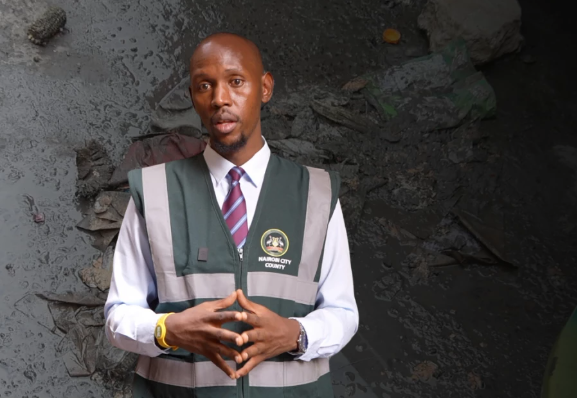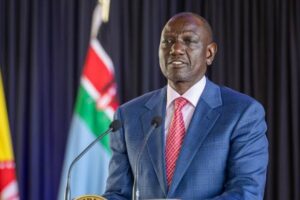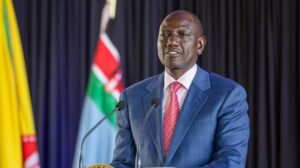Geoffrey Mosiria, currently serving as the Environment Officer for Nairobi County, has been active in promoting environmental awareness through various public relations initiatives throughout the city.
While these efforts may enhance the visibility of environmental issues, many residents argue that Mosiria’s focus does not adequately address Nairobi’s pressing environmental challenges.
Concerns have surfaced that his activities may prioritize spectacle over meaningful solutions to persistent problems like unmanaged waste and pollution.
Nairobi, the vibrant capital of Kenya, is beset by numerous environmental issues, with waste management emerging as one of the most pressing.
The city faces daily challenges, including overflowing garbage, inadequate waste collection, and a lack of proper disposal infrastructure.
In both the central business district and residential neighborhoods, the absence of sufficient dustbins leads to littered streets, detracting from the city’s image and quality of life.
Critics contend that rather than engaging in eye-catching public relations campaigns or hosting sporting events, Mosiria and the county’s environmental team should focus on implementing practical solutions to these widespread waste management issues.
Noise pollution in Nairobi is another critical concern that deserves immediate attention.
Residents living near Jomo Kenyatta International Airport (JKIA) experience constant disturbances from the sounds of planes landing and taking off.
While airports are essential for connectivity, the resulting noise significantly impacts the quality of life for nearby residents, disrupting their peace and enjoyment of their surroundings.
Although less visible than waste accumulation, noise pollution necessitates proactive management and community-focused solutions.
In light of these issues, residents are calling on Mosiria to redirect his efforts towards addressing Nairobi’s most pressing environmental challenges rather than primarily engaging in public relations.
Although public relations can play a role in raising awareness, critics argue that it often lacks the depth needed to catalyze substantial change.
For instance, while a sporting event might generate temporary excitement, it does not contribute to the structural improvements that Nairobi urgently requires.
Instead of hosting or promoting activities that merely showcase environmental awareness, Mosiria’s office could focus on sustainable waste management practices that yield tangible benefits for the city’s inhabitants.
One straightforward measure to combat littering would be to increase the number of dustbins throughout Nairobi.
Strategically placing these bins in high-traffic areas, such as markets, streets, and bus stops, would provide residents with accessible options for waste disposal.
Without visible improvements in waste management, however, Mosiria’s initiatives may appear as little more than attention-seeking stunts, failing to address the city’s actual environmental needs.
In addition to waste management, the Nairobi environment office should consider tackling noise and air pollution as part of its broader mandate.
The persistent noise generated by JKIA could potentially be mitigated through solutions such as sound barriers or by re-evaluating flight paths in collaboration with aviation authorities.
Vehicular emissions remain a major source of air pollution, contributing to respiratory health issues and degrading the city’s air quality.
By pivoting towards policy-level solutions and community education about these environmental risks, Mosiria’s office could create lasting improvements that benefit Nairobi’s residents.
Nairobi’s citizens are increasingly vocal about their desire for concrete, visible changes rather than superficial promotional campaigns.
As the city’s Environment Officer, Mosiria bears the responsibility to ensure that environmental policies are effectively implemented, resulting in direct benefits for those living and working in Nairobi.
Addressing issues related to waste disposal, noise, and air pollution not only represents achievable objectives but also lays the foundation for a healthier, more sustainable city.
The community is looking for leadership that goes beyond publicity stunts; they seek real actions that will improve their quality of life and contribute to the overall well-being of Nairobi.





















Add Comment